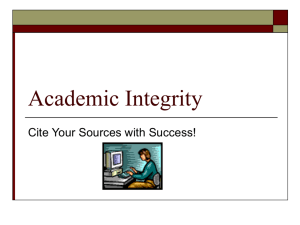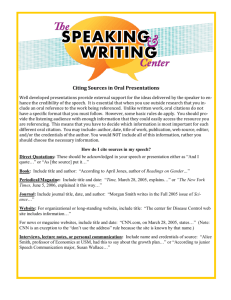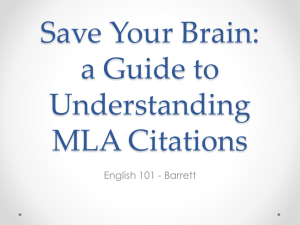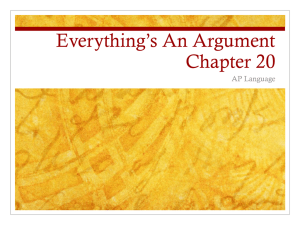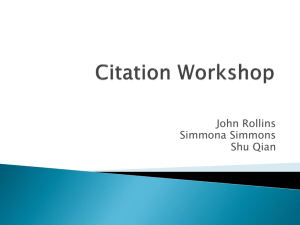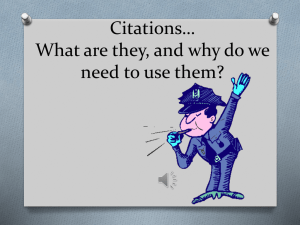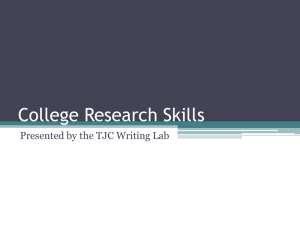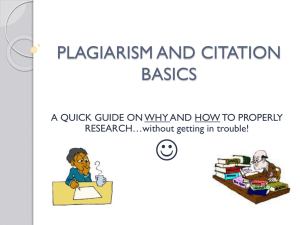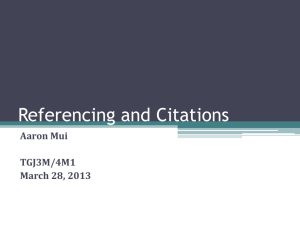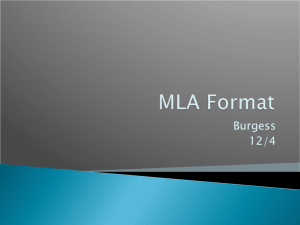What-is-common-knowledge
advertisement
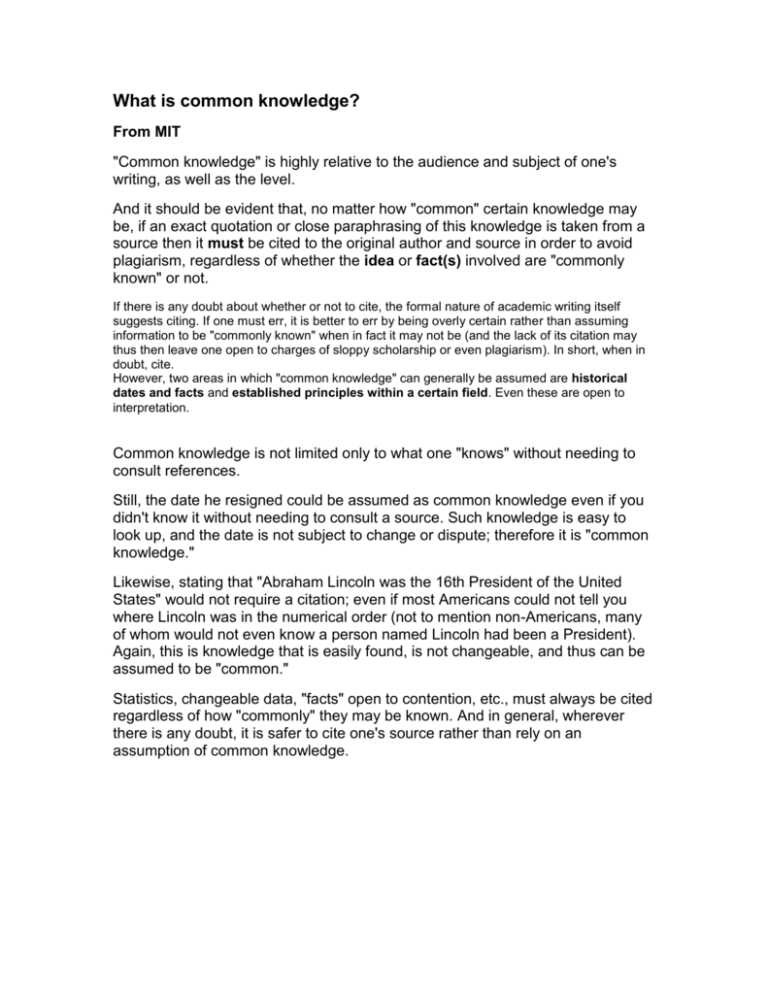
What is common knowledge? From MIT "Common knowledge" is highly relative to the audience and subject of one's writing, as well as the level. And it should be evident that, no matter how "common" certain knowledge may be, if an exact quotation or close paraphrasing of this knowledge is taken from a source then it must be cited to the original author and source in order to avoid plagiarism, regardless of whether the idea or fact(s) involved are "commonly known" or not. If there is any doubt about whether or not to cite, the formal nature of academic writing itself suggests citing. If one must err, it is better to err by being overly certain rather than assuming information to be "commonly known" when in fact it may not be (and the lack of its citation may thus then leave one open to charges of sloppy scholarship or even plagiarism). In short, when in doubt, cite. However, two areas in which "common knowledge" can generally be assumed are historical dates and facts and established principles within a certain field. Even these are open to interpretation. Common knowledge is not limited only to what one "knows" without needing to consult references. Still, the date he resigned could be assumed as common knowledge even if you didn't know it without needing to consult a source. Such knowledge is easy to look up, and the date is not subject to change or dispute; therefore it is "common knowledge." Likewise, stating that "Abraham Lincoln was the 16th President of the United States" would not require a citation; even if most Americans could not tell you where Lincoln was in the numerical order (not to mention non-Americans, many of whom would not even know a person named Lincoln had been a President). Again, this is knowledge that is easily found, is not changeable, and thus can be assumed to be "common." Statistics, changeable data, "facts" open to contention, etc., must always be cited regardless of how "commonly" they may be known. And in general, wherever there is any doubt, it is safer to cite one's source rather than rely on an assumption of common knowledge. From the OWL Purdue When do we give credit? The key to avoiding plagiarism is to make sure you give credit where it is due. This may be credit for something somebody said, wrote, emailed, drew, or implied. Many professional organizations, including the Modern Language Association (MLA) and the American Psychological Association (APA), have lengthy guidelines for citing sources. However, students are often so busy trying to learn the rules of MLA format and style or APA format and style that they sometimes forget exactly what needs to be credited. Here, then, is a brief list of what needs to be credited or documented: Words or ideas presented in a magazine, book, newspaper, song, TV program, movie, Web page, computer program, letter, advertisement, or any other medium Information you gain through interviewing or conversing with another person, face to face, over the phone, or in writing When you copy the exact words or a unique phrase When you reprint any diagrams, illustrations, charts, pictures, or other visual materials When you reuse or repost any electronically-available media, including images, audio, video, or other media Bottom line, document any words, ideas, or other productions that originate somewhere outside of you. There are, of course, certain things that do not need documentation or credit, including: Writing your own lived experiences, your own observations and insights, your own thoughts, and your own conclusions about a subject When you are writing up your own results obtained through lab or field experiments When you use your own artwork, digital photographs, video, audio, etc. When you are using "common knowledge," things like folklore, common sense observations, myths, urban legends, and historical events (but not historical documents) When you are using generally-accepted facts, e.g., pollution is bad for the environment, including facts that are accepted within particular discourse communities, e.g., in the field of composition studies, "writing is a process" is a generally-accepted fact. Deciding if something is "common knowledge" Generally speaking, you can regard something as common knowledge if you find the same information undocumented in at least five credible sources. Additionally, it might be common knowledge if you think the information you're presenting is something your readers will already know, or something that a person could easily find in general reference sources. But when in doubt, cite; if the citation turns out to be unnecessary, your teacher or editor will tell you.
